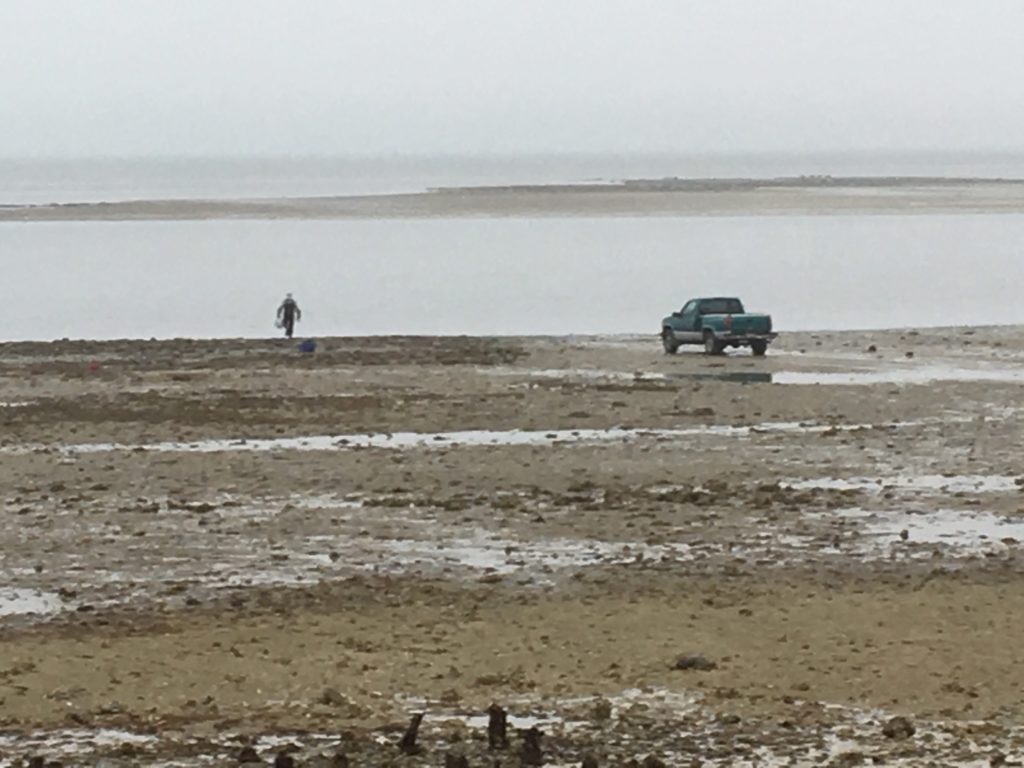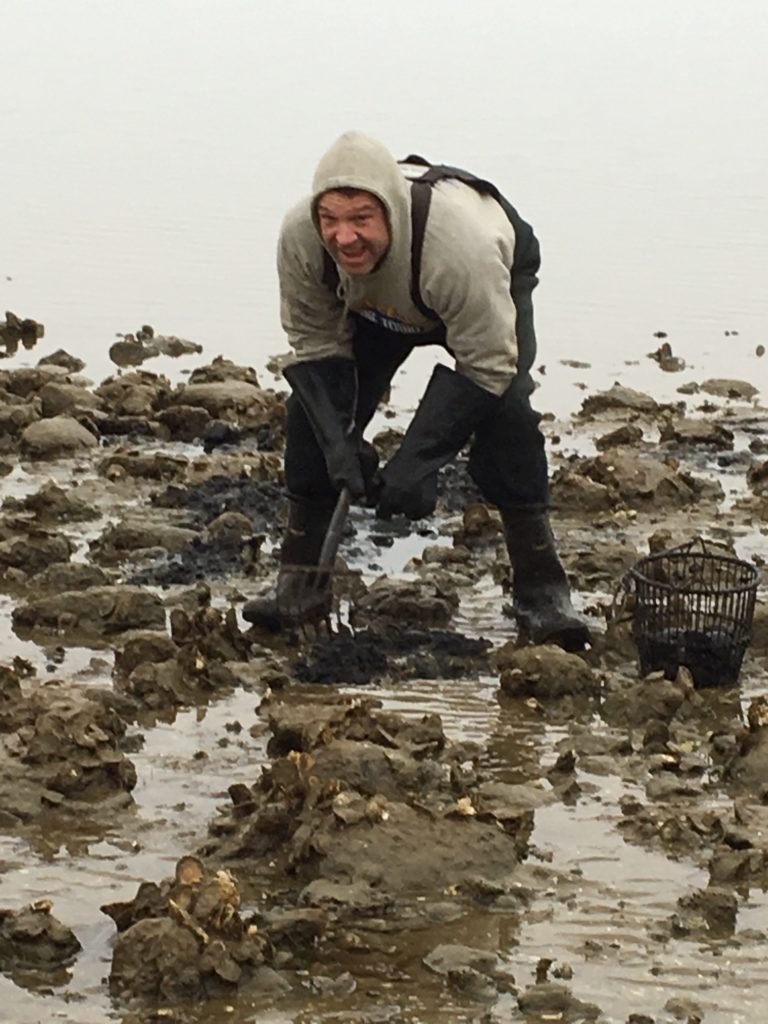WELLFLEET — Shellfishermen here are mobilizing to oppose state legislation that they say threatens their way of making a living from the sea. The Outer Cape’s state legislators and the Wellfleet Select Board are in their corner.

“We need people behind us to fight this thing,” Brett Morse, a member of the shellfish advisory board, told an Aug. 26 meeting of the Wellfleet Community Forum. “They want to take over this town.”
Ginny Parker, president of the recently formed Wellfleet Shellfishermen’s Association (WSA), said the bill, H.746, proposed by state Rep. Josh Cutler of the Sixth Plymouth District, would alter the way shellfishing rights change hands, giving an advantage to corporations over individual fishermen.
“We are very concerned about this bill,” said Berta Bruinooge, another shellfish grant holder and former selectman. “It has the potential to change the Wellfleet way of life. We do not want to see any outside entity have anything to do with this. Our number-one aim as a shellfishing organization is to kill this bill.”
The WSA was formed in February “to protect the character and tradition of Wellfleet’s historic shellfish industry by supporting the long-term viability of our wild harvesters and independent aquaculture farmers.” Its membership has grown to about 150, Parker said.
Wellfleet is the second-largest shellfish producer in the commonwealth, by volume of oysters landed. The largest is Duxbury, one of three towns in Cutler’s district.
The bill “would take governance away, and allow transactions to take place between private parties,” Parker told the forum.
Unlike every other state in the U.S., Massachusetts allows private ownership of tidal flats, the zone between the mean high tide and mean low tide lines. The rights to farm shellfish on the flats are administered by municipalities. In Wellfleet, only town residents can apply for aquaculture grants.
H.746 would change the existing laws governing shellfishing licenses to allow them to be transferred to “any entity” instead of “persons.” It would also eliminate the current 15-year time limit on such licenses.
“Once these rights become assignable and transferable, they would become commoditized, and we know the value would escalate,” Parker told the Independent. “It would potentially become farmers selling to the highest bidder, and that would not be good for Wellfleet.”
Shellfishermen would no longer be entrepreneurs but hourly workers, she said.

Shellfishermen have a tendency to be “nonjoiners,” and organizations come and go, but activists from five Lower Cape towns — Chatham, Orleans, Wellfleet, Truro, and Provincetown — recently met and agreed to work together to defeat the Cutler Bill and protect their way of life, Parker said. (A representative from Eastham was invited but could not attend.)
While shellfishing in Wellfleet is limited to small operations run by individual residents, usually with only a few employees, if any, elsewhere in the state there are large operations such as Island Creek Oysters of Duxbury, which might stand to benefit from the changes proposed in this bill. The Boston Globe reported in 2017 that Island Creek sold more than 10 million oysters that year. The total production of oysters by all Wellfleet shellfishermen was 10.74 million in 2018, according to the state Div. of Marine Fisheries.
Neither Rep. Cutler nor his staff responded to the Independent’s requests for comment.
The Cutler Bill has 11 cosponsors, including Rep. David T. Vieira of the Third Barnstable District. Vieira is a Republican; Cutler is a Democrat. The bill was referred to the House Joint Committee on Environment, Natural Resources and Agriculture on January 22nd and has not moved since that time.
State Sen. Julian Cyr of Truro was on vacation this week, but his senior adviser Leslie Sandberg said, “ ‘Kill’ is not the language we would use,” but because Sen. Cyr and Rep. Sarah Peake of Provincetown oppose the bill and are in leadership positions, “the bill is unlikely to advance.”
Peake said in an e-mail, “Under the proposed legislation a grant holder could sell his or her grant directly to a buyer. This raises serious issues about the consolidation of the industry into fewer and fewer hands as those with means will be able to afford an ever-increasing asset.”
The bill also raises public-health concerns, Peake said, because safe handling practices are administered locally.
“Shellfishing is a viable industry here on the Cape,” Peake said. “Young people can still afford to enter it and earn a living. While the current system isn’t without its issues, this proposal would be disastrous on many levels.”
Peake said her staff are prepared to alert local shellfishermen of any hearing date.
The Wellfleet shellfishermen also have the backing of the town’s select board.
“We protest the proposed bill which first and foremost undermines a municipality’s role as the authority which manages the use of intertidal land for shellfishing within its borders,” the board said in a letter of support for the WSA.
The letter suggests that if change is desired it should be made at the local level, not the state. “Don’t fix what isn’t broken,” the letter says. “Let any municipality who wishes to allow licenses to be sold, enact that for themselves.”



